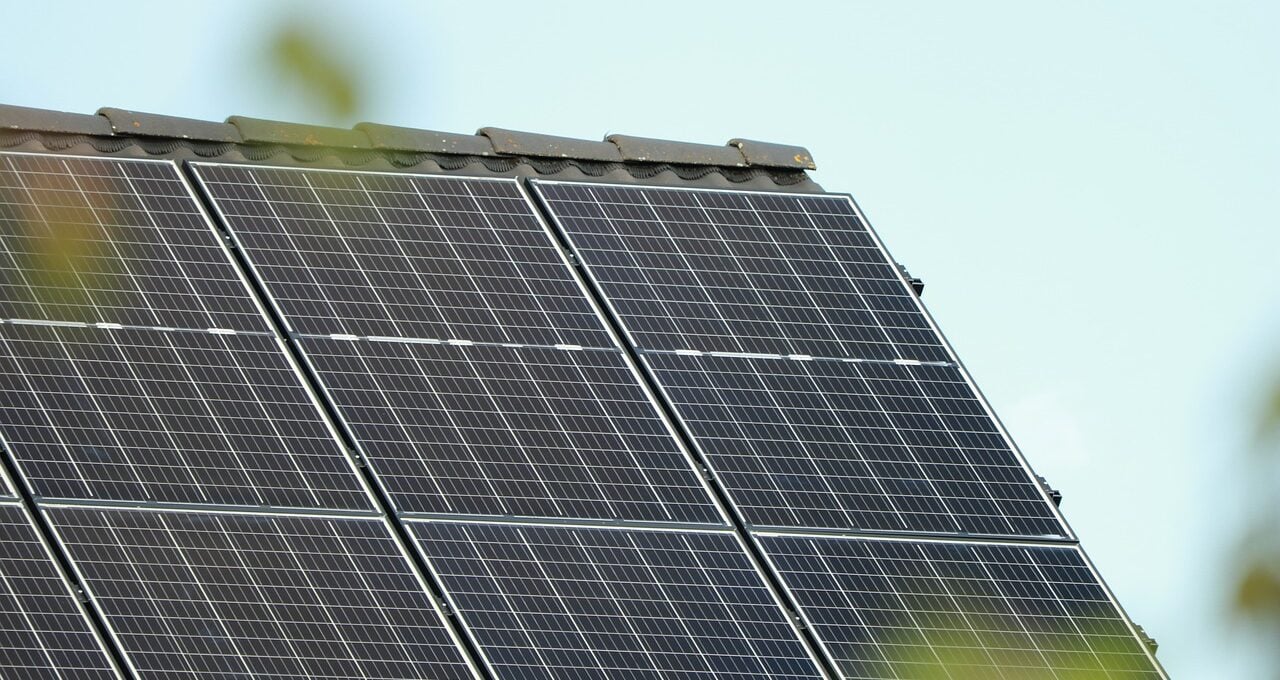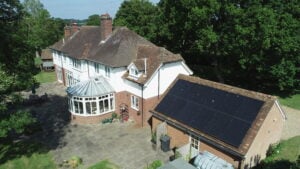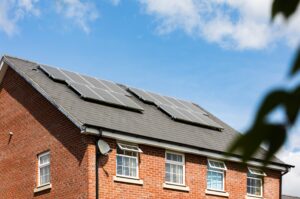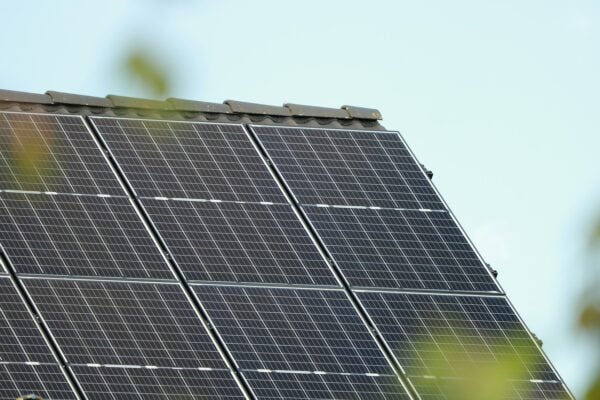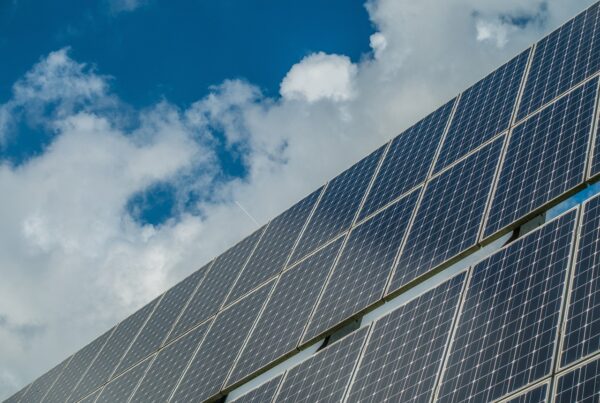How Many Solar Panels Do I Need To Power My House?
How many solar panels do I need?
The quick answer:
There is no quick answer. The beauty of solar panel installation is that it can be tailored to your exact requirements.
How many solar panels you need is determined by several factors like the size of your property, your household’s lifestyle, and the time of day that you typically use the most energy. No single household is likely to have the same requirements as the next.
That’s why it’s always best to talk to a solar panel installation expert so they can guide you based on your individual needs.
However, if you’re dipping your toe into the world of solar and are just curious, we’ve highlighted some key questions and considerations below.
Take a closer look at each of the factors so that you can start exploring a solar system that complements your property, maximises energy efficiency and saves you as much of your hard-earned cash as possible.
Can solar panels power a house?
In short, yes. Solar panels can power your house but every property is unique so the type and size of system you need can vary greatly. There are several factors that can make your requirements very different to those of even your closest neighbour.
One important factor that impacts how many solar panels you need is the size of your home. If you live in a large property, it’s likely that your household energy demand will be higher than that of a smaller home. Having lots of people living at home, owning lots of electrical appliances and having more rooms to heat during the winter can all cause high energy consumption. Ofgem suggests a property with 1-2 occupants will have an average annual electricity use of 2,200 kWh, while a household of 4-5 people typically uses 6,700 kWh.
Such a big difference in energy demand from home to home inevitably impacts the number of solar panels you need. Large homes usually require more panels and often have space available on the roof and elsewhere for them to be installed. However, this doesn’t mean that solar systems aren’t available to you if you only have limited space to work with. Systems have been developed that efficiently optimise the use of space so smaller households can rely on solar panels to meet their energy demand.
The efficiency of solar panels themselves is constantly improving. A single standard panel is capable of producing between 546-874 kWh per year, meaning 4 panels could meet the average electricity usage of a small home, although you’re likely to need a few more for your entire energy demand. Even the smallest of properties will usually have enough space for a system of that size.
There will inevitably be times when your panels produce more energy than you need at that very moment. Rather than it going to waste, solar panel battery storage can be installed to store any excess energy for use outside of daylight hours. This means that you don’t necessarily need the number of panels it takes to meet your absolute maximum energy output. Instead, fewer panels can be used to keep your batteries topped up at times when you’re not consuming energy.
Another space-saving benefit of battery storage systems is that they are stackable in series. Each device can be seamlessly connected to the next without the need for external cabling. Not only does this maximise your storage capacity, it also ensures your system is as compact as possible.
Contacting our experts is the best way to understand how many solar panels you need and what type of system your property requires, so don’t hesitate to get in touch.
Can solar panels heat a house in the UK?
It’s safe to say we aren’t always blessed with glorious sunshine here in the UK. The winters are long and the rest of the year is unpredictable at best. With that in mind, it’s no surprise that heating our homes is what we use most of our household energy for. Working out whether solar panels can heat your house depends on the capacity of your system and the amount of energy you use, but they can certainly make a significant contribution.
Thanks to the introduction of battery storage, surplus energy produced during the summer when you don’t have the heating on can be stored and used once the temperature drops. While solar PV output will inevitably decrease in the winter, it never reaches zero so you will always have an incoming supply on top of any energy you’ve already stored. Even if you can’t fully rely on solar panels for heating, the contribution they make reduces your dependence on the grid supply, giving you greater energy independence and making you less susceptible to steep energy price hikes.
Not only does your wallet feel the benefits, but the planet too. Unlike traditional methods, solar panels take advantage of the sun’s infinite supply of renewable energy meaning no harmful greenhouse emissions are produced. By installing solar panels you can play your part in helping the environment even while you’re tucked up at home with the heating on high.
Will solar panels save me money?
If you purchase the correct solar PV system for your home then you’ll save money regardless of how many solar panels you need. In terms of solar PV cost, our prices for averaged-sized systems typically range from £4,000 to £10,000. Naturally, if you require a lot of solar panels then this will involve a larger upfront cost, but the greater capacity will enable you to produce and store more energy, meaning you’ll make larger savings in less time. These savings will balance out the initial cost and speed up your return on investment.
How long it takes to make your money back will depend on the size, type and how effectively you utilise your solar system. All things considered, we find that customers make their money back in 4-12 years but usually fall within the 6-10 year range. This is largely thanks to the savings you’ll make on your energy bills (between 20%–80%), but also through the Smart Export Guarantee scheme. The SEG presents solar panel users with the opportunity to sell any excess energy they’ve stored back to the grid. Whether you keep your energy for later use outside of daylight hours, or choose to sell it, you’ll still be making great savings.
We understand that you might have come across several factors during your research into solar panels that imply your savings will be far more limited, especially if you invest in a high number of solar panels. Many of these factors either aren’t true or are blown widely out of proportion, so we’ve cleared them up for you.
Firstly, yes, there is some truth to the fact that having your solar panels face directly south will offer maximum efficiency. Not every property offers an absolutely perfect location but you’re only likely to experience a noticeably lower output if your panels are in a very unsuitable position. Improvements in solar panel technology mean they’re now efficient enough to produce an adequate amount of energy even if they aren’t in the prime location. Our trusted experts will work with you to identify a spot that maximises efficiency and complements your property’s layout, regardless of how many solar panels you need.
Secondly, that ideal location doesn’t need to be a huge roof. Of course, space on your house’s roof will often be used if it’s available and you require a high number of panels, but most properties have plenty of other options, whether it’s on the ground or on other buildings like sheds and garages. Again, our experts inspect properties both large and small to find the best solar solution for you.
And finally, solar panels aren’t only effective in the blazing sun. Sunny days present the opportunity for maximum efficiency but panels still absorb light when it’s overcast or rainy, so don’t let the UK climate put you off. The only time panels don’t produce energy is during the night but storage batteries ensure you can use renewable solar energy at any hour of the day.
Get your free no-obligation quote
Request a call back from one of our solar energy advisors. We’re here to advise on the most efficient solar PV installation for your needs, not ours. Discover how you can start saving up to 80% on your energy bills with solar energy.
